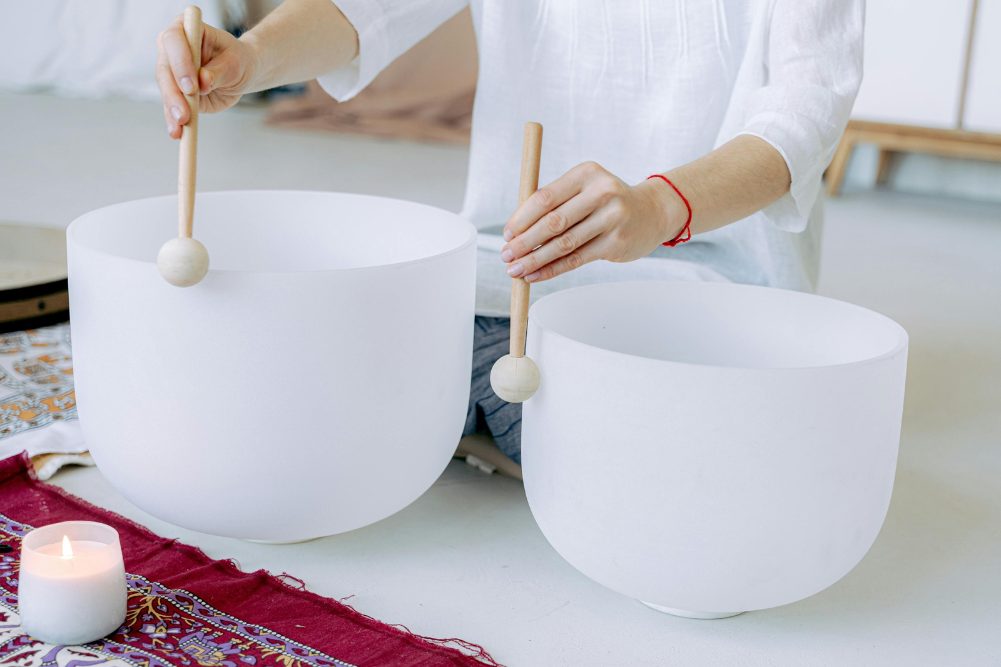10 happy habits to embrace each day
Happiness is something we all want, but it does not just happen, you have to make it happen. Here we suggest 10 habits you can cultivate to build the happiness you desire.
You want to be happy, don’t you? We all want to be happy, so that is the easy question. The more difficult question is: are you prepared to do what it takes to be happy? It becomes a bit harder at that point because you need to acknowledge that happiness does not simply happen. Left to its own resources, the human mind latches on to negativity: it is called “negativity bias” and it is a survival strategy. So to achieve happiness you need to transcend that innate bias and train yourself into a flourishing mindset.
Train yourself to look forward to future steps and you will find yourself feeling better about life.
Just as physical training needs to be something you do on a regular basis, so does mental training. It is a matter of creating habits that nourish your happiness and doing so deliberately. You do not have to embrace all of these habits all at once, but here are 10 habits you can cultivate to create the happiness that you crave.
1. Embrace challenge
The best moments in your life are not passive times. Instead, they usually happen when your body or mind is stretched to its limits in an effort to achieve something worth while, something that pushes you to respond thoughtfully, to take risks and to keep your faith in self. To experience these best moments, you need to find a project that inspires you, one that will require determination and present a challenge. While a challenge requires effort to overcome the problems inherent in achieving a goal, importantly it also requires creativity. Without creativity, happiness remains elusive, but embracing challenges that foster creativity is a reliable happiness-building habit.
2. Look forward
It is natural to reflect on what has brought you to this point in your life. However, it is also important to remind yourself that there is nothing you can do to change the past. The best you can do is to ask yourself what you would do differently next time and then move on, forgive others and forgive yourself. When you find your mind wallowing in the past, make a conscious effort to change the direction of your thought and to look to the future. Do not deny your past — it is part of you — but do not dwell on it. Train yourself to look forward to future steps and you will find yourself feeling better about life.
3. Focus
Focusing helps you attend to your inner emotional landscape, through labelling and exploring your feelings. Rather than avoiding, suppressing or attempting to ignore feelings, it takes less energy to calmly acknowledge emotions or inner sensations. Once you make a habit of observing and accepting your inner sensations, those very sensations will become less intense and you will become more peaceful, a key element of happiness.
4. Be grateful
People who feel more gratitude cope better with a major life change and are less stressed, less depressed and more satisfied with their relationships. You can make gratitude a habitual state of being by counting your blessings. It is hard to complain about the little things when you give thanks that you and your loved ones are alive and healthy. Equally, it is hard to be too stressed out over paying bills when you are grateful to have a roof over your head. Make lists of the good things in your life or make a regular practice of telling people the good things that happened in your day and you will start to feel happier almost immediately.
5. Simplify
Psychological testing shows that people suffer more stress in cluttered houses and cluttered offices. In clean spaces you feel more relaxed and energetic. Create simplicity in your life by decluttering: throw out clothes, books and household items that you have not touched in the last three years. Grow your own food, spend time in the garden and live a life that is within your means and limits. Living simply decreases your stress, and thinking about what it takes to simplify your life will help you focus and keep your attention on the things that are really important to you. This is the foundation for happiness.
6. Smile when you can
A sense of security is essential to feeling happy. Research has shown that the brain chemical oxytocin disarms the threat response. Hugging is one way to boost oxytocin levels but in a post-COVID world we will not be hugging as much as used to. However, you can get your brain to secrete oxytocin by smiling more often. Smiling becomes a habit, so do it whenever you can.
7. Breathe
When you are anxious your breathing pattern changes again and becomes shorter, harder. If you want to stabilise your emotions then controlled breathing is an effective way to do so. Train yourself to breathe deeply and to exhale fully. When you work with your breath you are working with your emotions and can remove barriers to your happiness.
8. Love somebody
There is plenty of evidence that the act of committing yourself to loving another individual is a happy thing. Married couples are more likely to be successful at work, live longer and yes, they are also happier. There is a variety of reasons as to why functional long-term, committed relationships are thought to make people happier and healthier. Prime among these is the positive impact of having an inbuilt support system so that work and life stresses can be more readily discussed with a caring other, helping alleviate stress.
9. Connect
People who are happy are people who are connected to the world beyond themselves. Make a habit of finding ways to make this connection because it does not just happen, you have to make it happen. Connecting with others means that you will be in a better position to help them be happy by having their needs met and at the same time your needs will likely be met. In connections with others lies the richness of life, so make it a habit to reach out to someone on a regular basis.
10. Meditate
To be meditative is a state of mind and arises from practice and discipline. It is a practice that develops your capacity for awareness, and the evidence is that meditation strongly promotes happiness. Through meditation you develop a new default mode of the brain that is centred less on the self and more focused in the present. This ability to be in the present in the moment is central to the experience of happiness.








